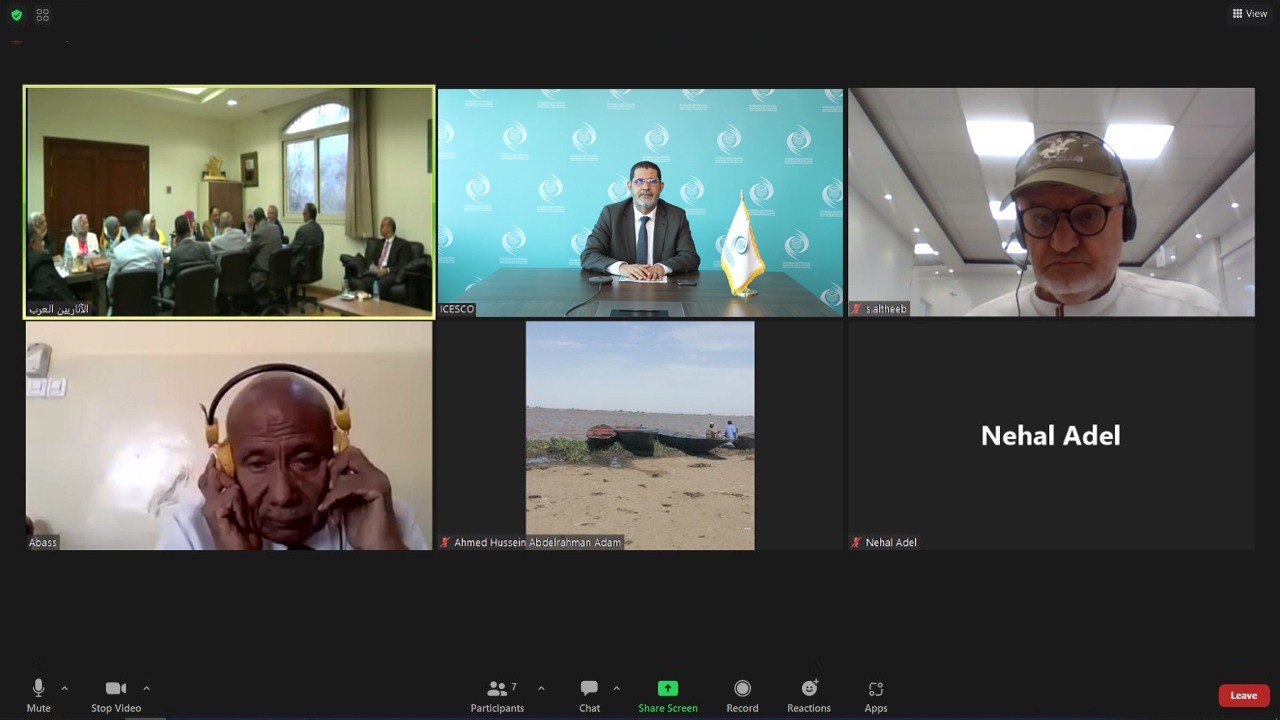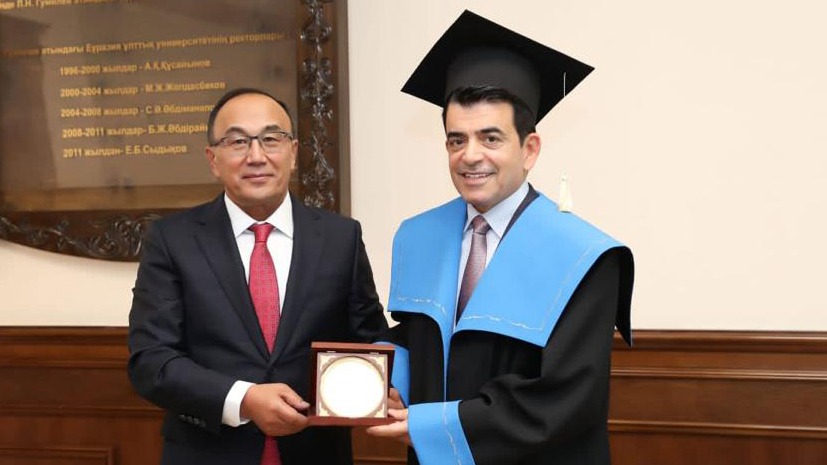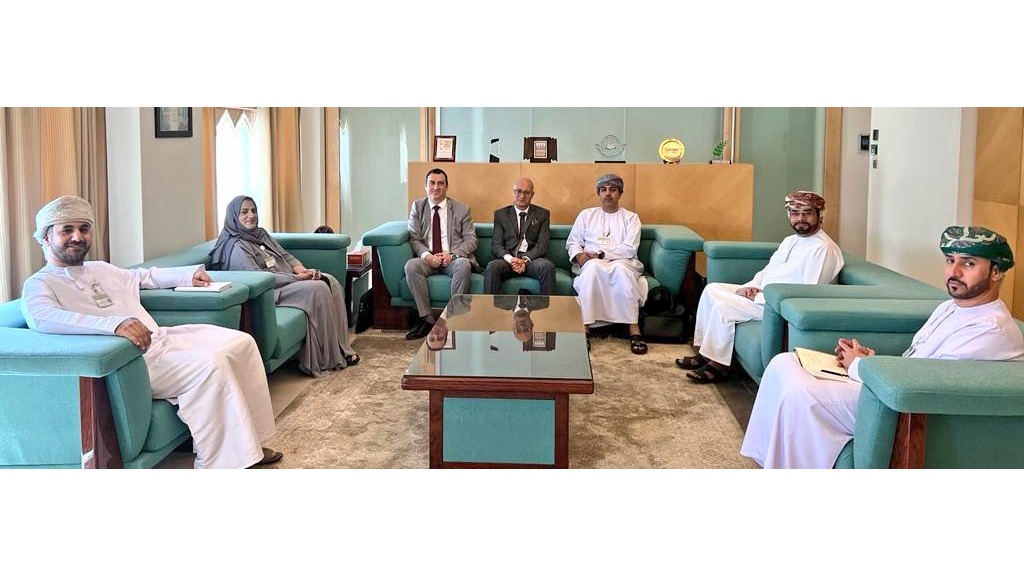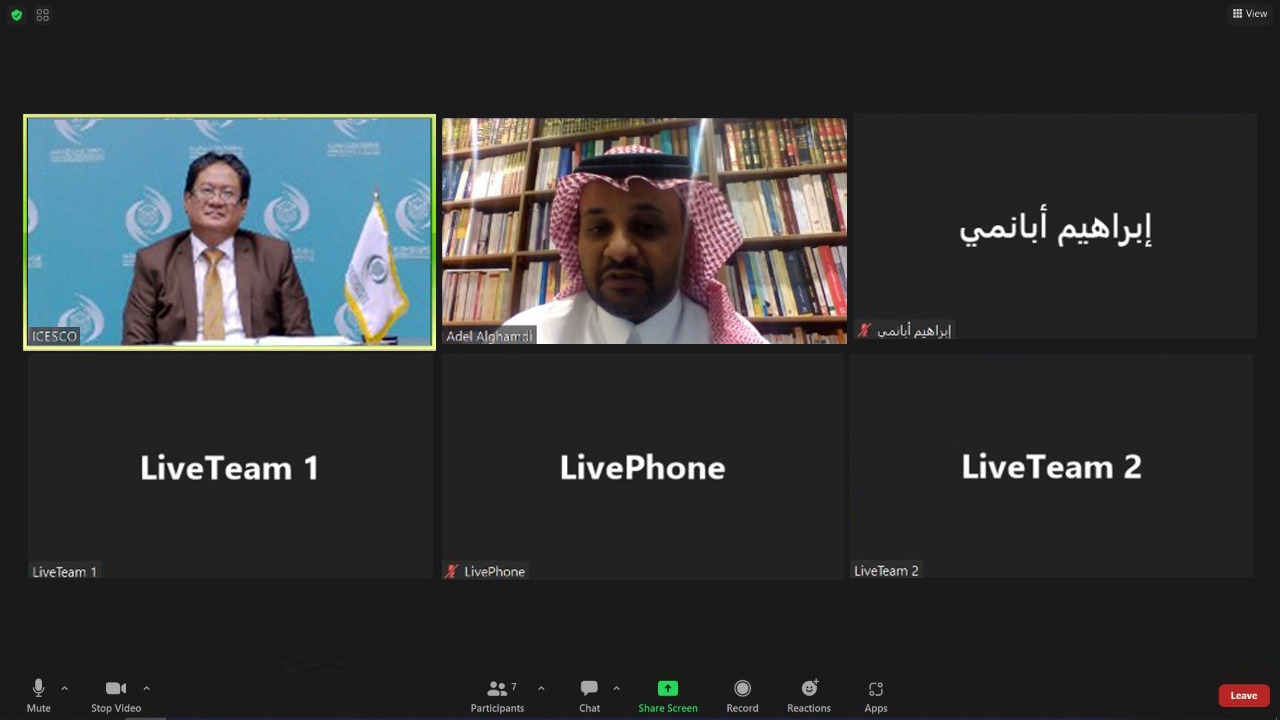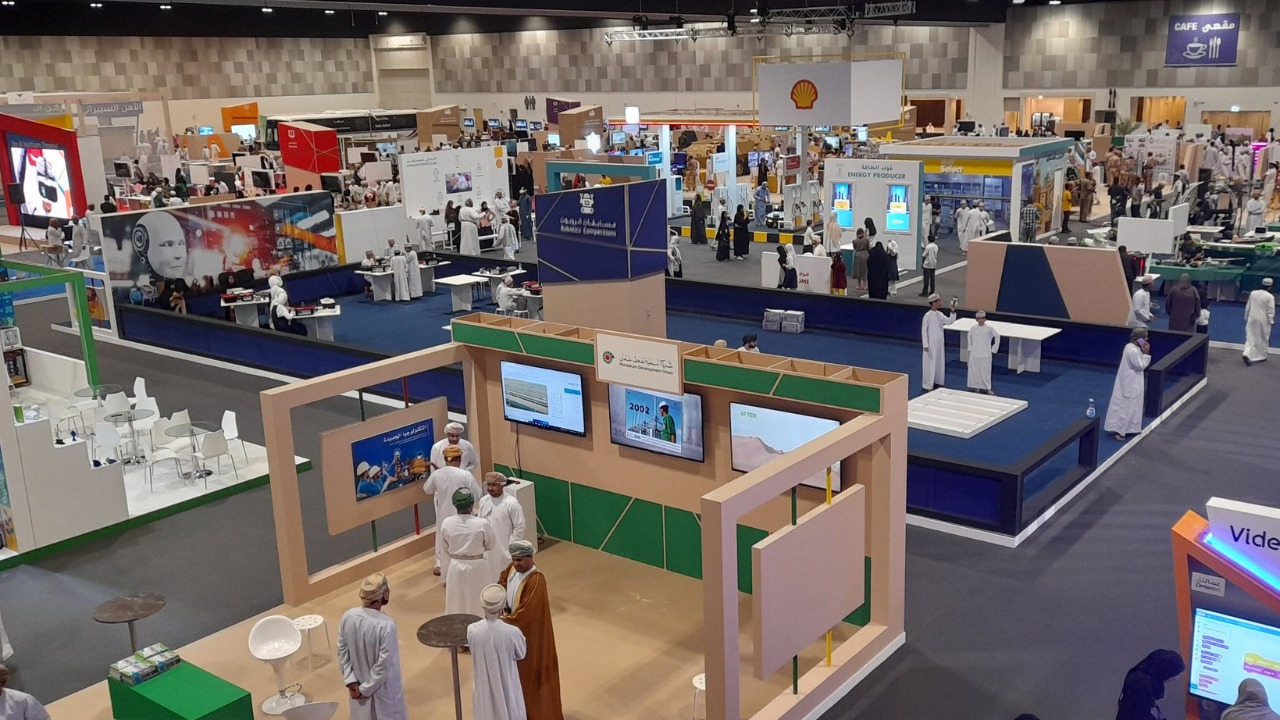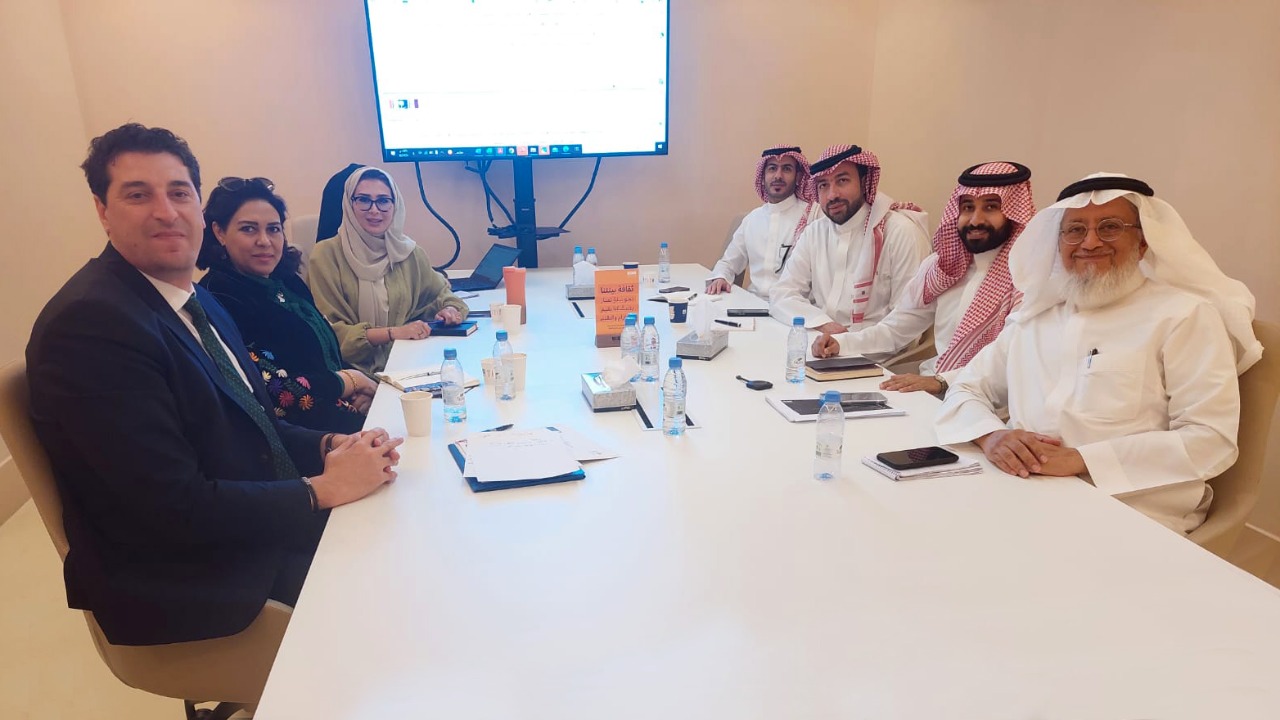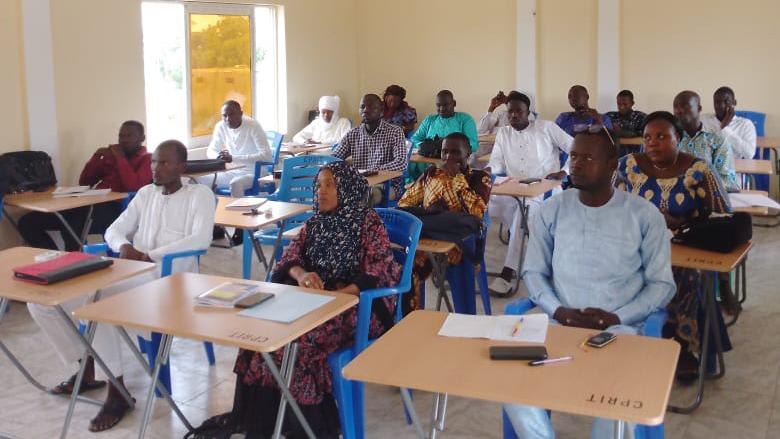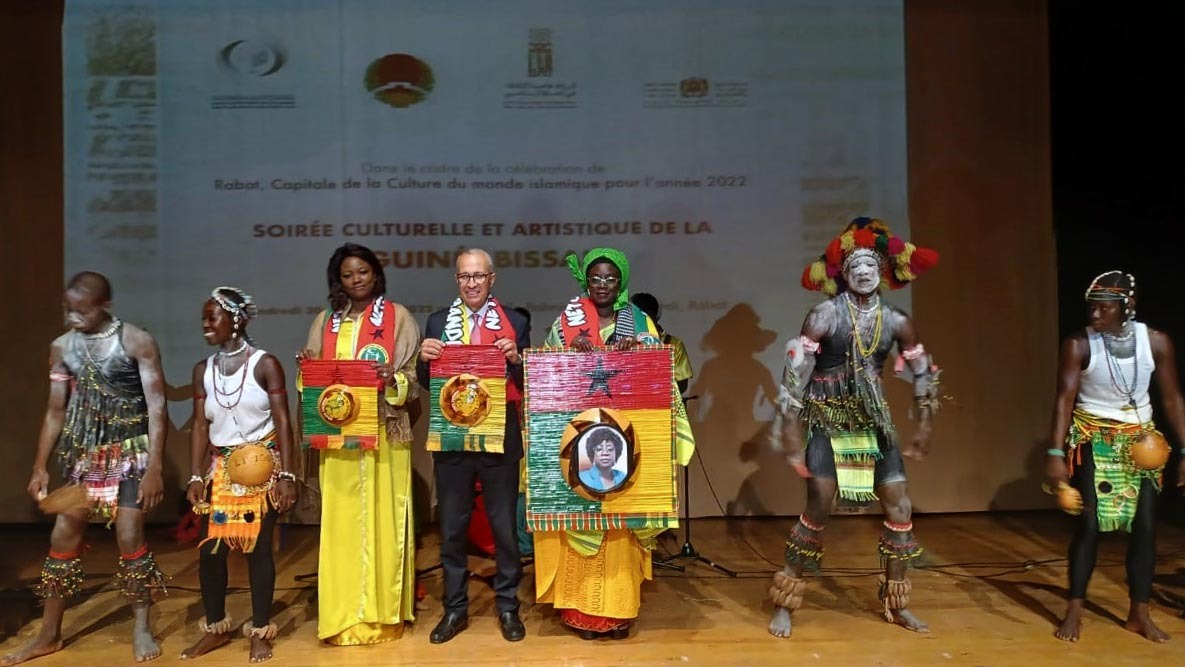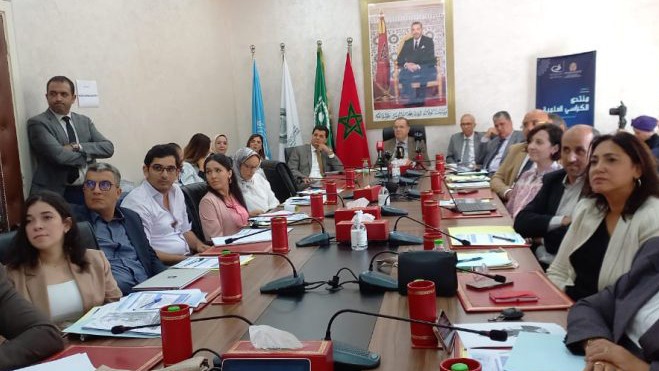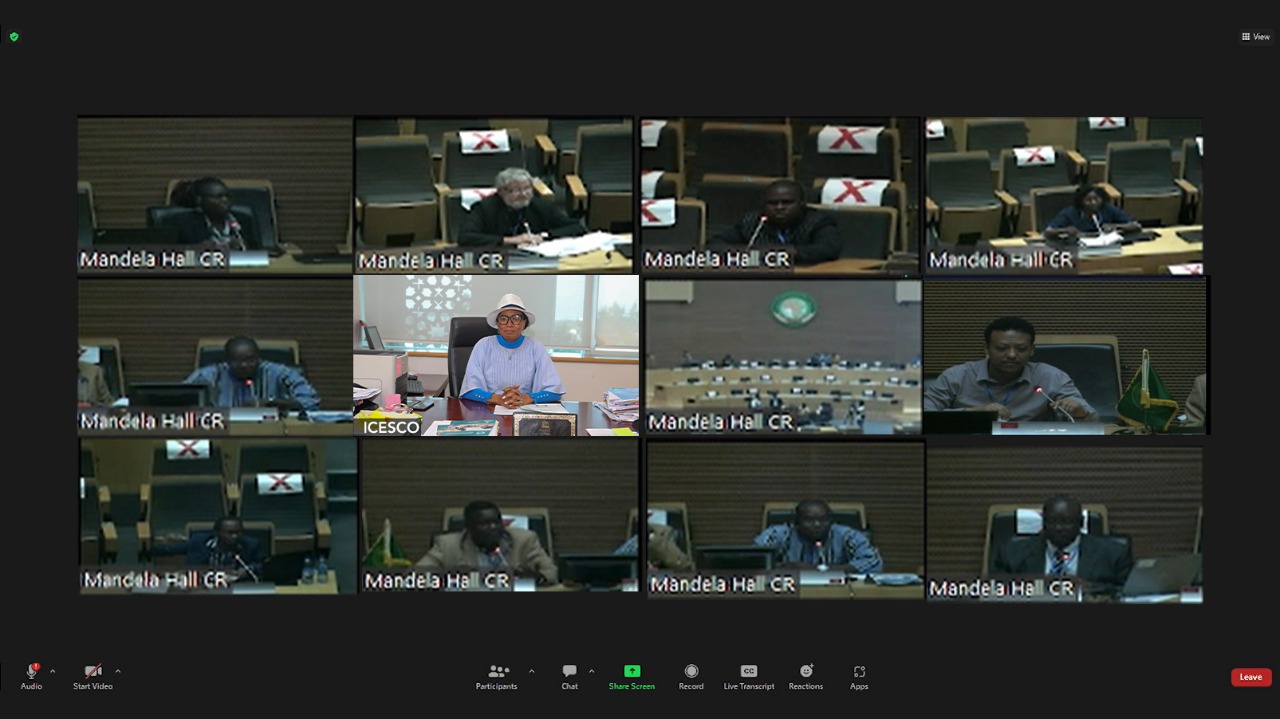The Culture and Communication Sector of the Islamic World Educational, Scientific and Cultural Organization (ICESCO) participated in the meeting of the Board of Directors of the Arab Council of the General Union of Arab Archaeologists, which was held on Thursday, October 13, 2022, at the Union’s headquarters in the Egyptian capital, Cairo, and via videoconference.
At the outset of the meeting Dr. Mohamed Kahlaoui, President of the General Union of Arab Archaeologists, reviewed the Union’s activities and achievements during the past year, as well as research, grants and prizes for students.
For his part, ICESCO representative, Dr. Nami Salihi, Expert in the Culture and Communication Sector, reviewed the Organization’s activities in field of research, training, supervising and safeguarding antiquities and cultural heritage, noting ICESCO efforts to contribute to the preservation and valorization of heritage in the countries of the Islamic world.
He pointed out that ICESCO is cooperating with several external experts in order to carry out studies and assessments related to archaeological sites in the Islamic world.
Participants and state representatives explored the organizational foundations for the upcoming conference of the General Union of Arab Archaeologists and the efforts made in the field of research and training.

